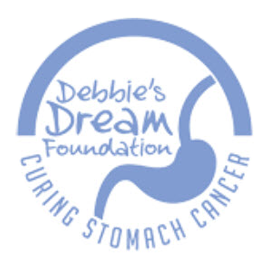An expert panel of the European Medicines Agency (EMA) has recommended issuing marketing authorization for Daiichi Sankyo (OTCPK:DSKYF) (OTCPK:DSNKY) to include gastric cancer as an indication for Enhertu, an antibody-drug conjugate the company develops with AstraZeneca (NASDAQ:AZN).
Newswise — Helicobacter pylori (H. pylori) infection is a major cause of gastric cancer, and researchers at Sylvester Comprehensive Cancer Center at the University of Miami Miller School of Medicine have several projects underway to better understand the association and develop much-needed prevention and treatment.
When the CNN anchor Anderson Cooper was ten, he lost his father, Wyatt, to heart disease; when he was twenty-one, his older brother Carter died by suicide. In 2019, his mother, the artist, and clothing designer Gloria Vanderbilt, passed away at ninety-five, of stomach cancer. (Vanderbilt had watched, desperate and helpless, as Carter leapt from the terrace of the family’s fourteenth-floor apartment in Manhattan.) For Cooper, who is now fifty-five, the loss has become an unexpected beacon in his life—a way of constantly reaffirming his humanity. “My mom and I would talk about this a lot,” Cooper said recently. “No matter what you’re going through, there are millions of people who have gone through far worse. It helps me to know this is a road that has been well traveled.”
Sodium is an important mineral that helps your body perform many vital functions. It can be found in foods like eggs and vegetables, and it is also a big part of table salt (sodium chloride).
Even though sodium is beneficial to health, it is not always recommended. For example, people with heart failure, high blood pressure, or kidney disease are often told to eat less salt.
A new study led by scientists at the Institute of Cancer Research, London (ICR) and The Royal Marsden NHS Foundation Trust has shown how stomach cancers can evade the effects of a new class of drugs, raising the possibility of being able to predict drug resistance in advance.
The researchers found that stomach cancers could develop resistance to ATR inhibitors by switching off the activity of two genes, meaning genetic tests could be used in the future to select patients whose cancers are most likely to respond to this class of drugs.
The purpose of this study is to assess the safety and effectiveness of the investigational drugs domvanalimab and zimberelimab given together with or without FOLFOX chemotherapy in people with inoperable or metastatic upper digestive cancers. Both domvanalimab and zimberelimab take the brakes off the immune response by blocking certain proteins, enabling the immune system to find and destroy cancer cells. FOLFOX is a combination of chemotherapy drugs which is commonly used to treat digestive cancers.
The stomach is a muscular J-shaped sac-like structure, mainly acts as reservoir for the food, located in the upper and left part of the abdomen and a crucial part of the Digestive organ of gastrointestinal system. It produces enzymes (Substances that create chemical reactions) and acids (digestive juices). This mix of enzymes and digestive juices breaks down food so it can pass to our small intestine(duodenum).
Die esophagus belongs to gastrointestinal tract and transports food from the throat to the stomach. Cancer of the esophagus is comparatively rare in Germany: men are four to five times more likely than women. The median age at diagnosis is 67 for men and 71 for women. The insidious thing about the disease: Symptoms usually appear very late. In many cases, patients only see a doctor at an advanced stage – for example because of difficulty swallowing. Therefore you should know the main symptoms of the esophageal cancer know. You might also be interested in: Deadly tumors – the most life-threatening cancer diseases.
Amgen battled other biopharma suitors for Five Prime Therapeutics early this year, emerging victorious in March with a $1.9 billion deal to snap up the cancer-focused biotech. Now, the company is painting a fuller picture for bemarituzumab, the crown jewel of the buyout, showing the treatment helped patients with advanced stomach cancer live longer.
Two Vanderbilt-Ingram Cancer Center researchers have received $5 million in funding from a new initiative by the National Cancer Institute that aims to define how gastric and gastroesophageal junction adenocarcinomas form and evolve at the cellular level.
